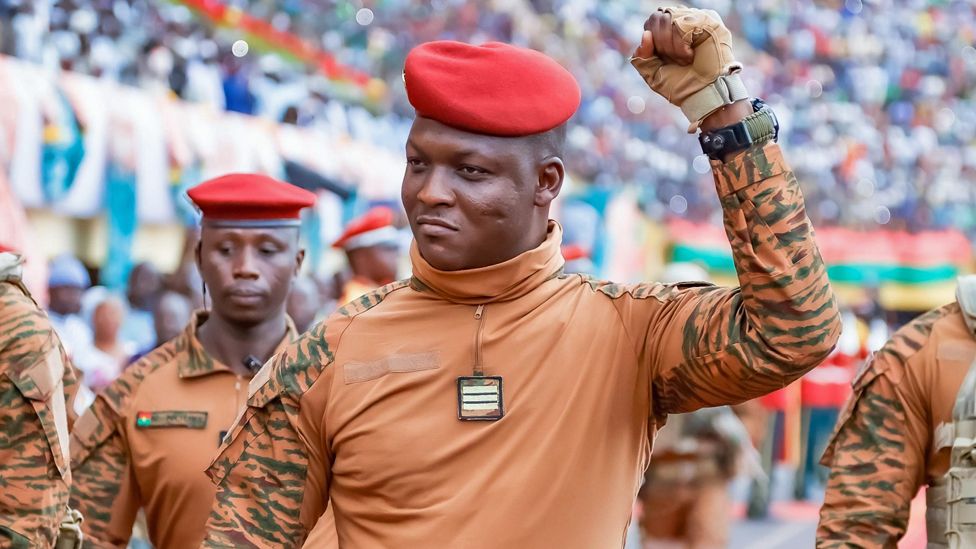Capt Ibrahim Traoré: Why Burkina Faso’s Junta Leader Has Captured Hearts and Minds Around the World
At the age of 37, Captain Ibrahim Traoré has emerged as a significant figure in Burkina Faso’s political landscape, capturing attention with his compelling narrative of pan-Africanism and anti-imperialism. His leadership style, marked by an assertive rejection of Western influence, resonates with a growing number of people across Africa who are eager for change.
Since taking power in a coup in 2022, Traoré has positioned himself as a champion of national sovereignty, much like Thomas Sankara, who is revered as a revolutionary hero in Burkina Faso. His supporters deem him an embodiment of Africa’s struggle against colonial legacy and exploitation. Beverly Ochieng, a senior researcher at Control Risks, remarked on Traoré’s profound impact, stating that his sentiments align with the disillusionment many Africans feel towards long-standing relationships with Western nations.
Shifting Alliances and Economic Reforms
Under Traoré’s leadership, Burkina Faso has pivoted away from its historical alliance with France and has embraced closer ties with Russia. Key to this realignment is a series of leftist economic policies designed to ensure that the nation reaps the benefits of its abundant resources. For instance, a state-run mining company has been established, mandating that foreign enterprises relinquish a 15% equity stake in their operations and share their expertise with the local workforce.
In a significant move, the junta recently greenlit a project for a new gold refinery, a first for Burkina Faso, aiming to secure its position in the global mining industry. This strategy includes nationalizing two gold mines and contemplating further state control over foreign-owned mining interests. The effects of these policies are already visible, as foreign entities like Sarama Resources have initiated arbitration proceedings following adverse actions from the regime.
A New Wave of Popularity
Traoré’s radical reforms have endeared him to many across Africa, carving out a reputation that some believe makes him the continent’s most favored leader. His messages, amplified through social media, often depict him as a modern-day Sankara. AI-generated music videos featuring renowned artists celebrating him have further inflated his image—although some have been noted for inaccuracies.
His notable speech at the 2023 Russia-Africa summit, encouraging fellow leaders to reject subservient roles to external powers, attracted widespread media coverage, particularly from Russian outlets, which have played a key role in crafting his pan-Africanist narrative.
| Aspect | Details |
|---|---|
| Leadership Style | Pan-Africanist, anti-Western imperialism |
| Key Policies | State control in mining, partnerships with Russia |
| Public Sentiment | Strong support across Africa, particularly among youth |
| Challenges Faced | Ongoing Islamist insurgency, dissent suppression |
Fractured Relations and Growing Tensions
Despite his rising popularity, Traoré’s government has been criticized for its heavy-handed approach, including a crackdown on dissent and opposition voices. His failure to address a persistent Islamist insurgency poses challenges to his regime, creating ethnic divisions and insecurity in the region.
The leader faces skepticism from Western officials, including French President Emmanuel Macron, who has labeled him as part of a “baroque alliance” with neo-imperial powers. Nonetheless, his supporters view these international criticisms as further evidence of an imperialist agenda trying to undermine his leadership.
As Burkina Faso’s political landscape undergoes swift changes under Traoré’s rule, the interplay of local support and international relations will be pivotal in determining the nation’s path forward. The captain’s ability to translate his popularity into lasting governance will be measured against the challenges that lie ahead for Burkina Faso and its people.


